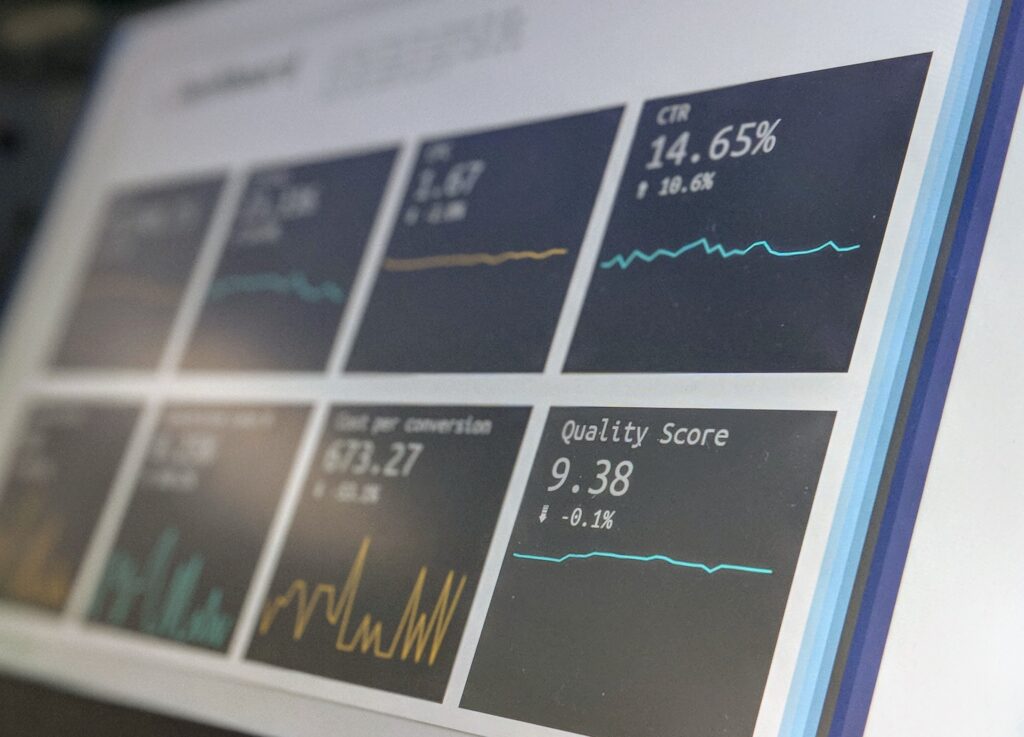Part 2 – ALX Global Data Courses Prepare You for the Future
- Tony Camme
- July 24, 2023

ALX Global developed its Data Science and Data Analytics online programs in conjunction with ExploreAI Academy. We sat down with the ExploreAI team to discuss these two new programs in detail to better prepare learners for their ensuing careers in data. Read part II of that Q&A here.
ExploreAI is a global data company that builds AI-driven software to help train workforces, hire talent, and sponsor learners. Its learning institution, ExploreAI Academy, provides access to data science education for people across the world to help them upskill and build long-lasting careers in data.
Part one of this conversation was a deep dive into data, understanding the different career paths that learners can take for their best success. Part two is focused on the actual courses themselves, understanding how they address the needs of Big Data and how they prepare learners for future success.
This Q&A will answer key career-oriented questions like:
- What is it like working in the data industry?
- What does it take to be successful in the data industry?
- What skills are needed to become successful in this industry?
- What course(s) are the right path for someone looking to kickstart their data career?
Q: How are the ALX Global x ExploreAI Data Science and Data Analytics programs delivered?
A: The overarching intention with all of our courses is to teach skills that are both relevant now and future-proof. That’s a big part of both the data science and data analytics courses.
In our technical data analytics program, learners will get into key topics like structured query languages (SQLs), spreadsheets, and data dashboards over the course of 3 months. These are foundational basics that any data analyst should be comfortable with.
With our 11-month technical data science program, learners will get into Python and how they can leverage it to do things like regression, natural language processing, classification, and unsupervised learning. Then we kick off with the foundations of cloud computing.
In both courses, all of the content is self-paced and all of the learning material is delivered by our learning management system, Athena. Announcements and webinars are posted regularly on the same platform, where learners can also find FAQs or communities for additional administrative or academic support.
Q: What kind of commitment must you make to succeed in the ALX Global x ExploreAI Data Analytics and Data Science programs?
A: Our data science program is an 11-month commitment, while the data analytics program can be completed in 3 month’s time.
On paper, the commitment for each course is about 30-40 hours per week. That will remain true for the first two modules of each course. When you get further into SQL with data analytics or into Python and machine learning with data science, you might see that number jump up to between 50-70 hours per week. It all depends on how many hours you put into practicing these languages to help cement the knowledge you learn throughout the modules.
The main way to succeed in these programs is to practice, practice, practice! It will be your responsibility to decide whether to spend the recommended 30-40 hours on paper, or to say, “I really want to become a brilliant data scientist or analyst at the end of this course.” Naturally, the latter would require a larger time commitment.
Q: After completing either the data science or data analytics program, what can I confidently tell an employer I am qualified to do?
A: Two things we prioritize in our space are having a portfolio that greatly boosts your CV and getting your name out there to show people what you can do first-hand.
Data science, for instance, is an emerging field, and there aren’t a lot of people with the requisite skills out there. By completing the course with ALX Global, you will have the opportunity to develop and demonstrate your mastery of these requisite skills, including Python and machine learning.
Practically speaking, these programs teach learners to solve real world problems. Whether you’re just starting out in the field or are in a more experienced role, we teach critical skills that make a real impact.
Data processes can be messy. Our goal is to teach people to take complex problems and break them down into smaller, more manageable pieces that are easier to solve using the acquired data skills.
After you’ve completed either the data science or the data analytics course with ALX Global, you can say, “I know how to solve data problems with data skills and tools.” This will help you in any interview for any data-related job in the future.

Q: Are graduates from these data programs successful at finding jobs after completion?
A: These programs include a heavy emphasis on practical data science and data analytics skills, which take more than the point-and-click method to perfect. Here at ExploreAI, we can happily testify to the skillset many ExploreAI graduates have. Many graduates of similar courses have come to work with us at ExploreAI and their skills are thoroughly impressive.
If you put in the effort in this course, it will definitely set you up for a successful trajectory in your data career.
Q: What advice would you give to someone about passing these programs with ALX Global?
A: The first piece of advice is simple and obvious, but extremely important: practice, practice, practice!
Another important part of this is to engage with your cohort and learn from your peers. By setting up coding sessions to review each others’ dashboards, you can see how each person solves problems their way and learn from each other. This is one of the best ways to learn.
The program is designed to teach you the skills and give you the tools to be a successful data analyst and data scientist, but for you to really believe you are one, you have to continue learning and practicing.
Our last piece of advice is to open yourself up to your own curiosity. By constantly pushing your own boundaries and the boundaries of data, you can gain the enthusiasm to really progress in this field. By sharing that curiosity with others, you can inspire them to push those boundaries using their newfound knowledge and skills, too.
Q: Once you choose a program, will you get exposure to an actual, real-life project as you study?
A: Real world problems are complex. What we do at Explore AI is to take real-life problems from our business side and adapt them for learning exercises.
Data analytics has an integrated project, for example. There, you will learn how to clean and process data in spreadsheets, then query it using SQL. In the same project, you will build a dashboard using that data. So, throughout the course, you’re constantly building on your knowledge, imitating how that process actually works in the real world.
In the data science program, there is also an integrated project, but each module has its own capstone project as well. The capstone often imitates real-world problems that you can apply your learnt skills and tools onto.
Q: Who should take the ALX Global Data Analytics or Data Science course? Why are these data skills so important to learn?
A: Put simply, data is the future and almost all careers in the future will involve data in some way. You need to make sure that you are a part of that future and that your skillset is future-proof. For that reason, this course is for anyone and everyone!
The first time you are able to take a bunch of data and transform that into insights or into bold and beautiful dashboards – that’s an exciting moment. Gaining that curiosity and understanding how we can tell stories with the data is important. Almost all industries and organizations need to understand their data and how they can leverage it. You can be the one to help them do that!
It doesn’t matter what your domain knowledge is; there’s always a way to leverage data.
Q: Let’s say I want to get into machine learning as a career. Is it necessary to learn data science first?
A: It’s all about foundations. These days, machine learning can be done in one line of code, where you fit in a model. The real art and science – in terms of how well you apply your machine learning techniques – is an underlying understanding of statistics, programming, and how to apply it properly.
When it comes down to it, machine learning is a subset of machine learning. In order to get really good at machine learning and become an expert in that field, data science is absolutely a must-learn.
Q: What is one thing that people should know about the ALX Global x ExploreAI data programs to help them feel confident in taking them?
A: Firstly, everyone should consider a career in data analytics or data science. Data is currently eating the world, just as software or code was eating the world previously. It’s the next big thing, and it’s here to stay.
This is a space that is truly exciting and, by studying these subjects, you will get to see futuristic things happen right before your eyes. Things that you may have seen on some futuristic TV show that weren’t possible just a few years ago can happen today. It’s a very exciting field to get into because the possibilities are truly endless.
Last, taking these courses is a unique opportunity to catapult yourself into a data-related career at almost any company in any industry around the world. You’ll have a solid understanding of data, whether you’ve taken the data analytics or data science course, which can only propel your career forward. Take the plunge today!

ALX Global, in partnership with ExploreAI, offers cutting-edge courses in Data Analytics and Data Science. Apply to join one of these world-class programs and discover your next big opportunity with a career in data.
Part 1 of this Q&A explores the importance of data science and data analytics in the world of Big Data.